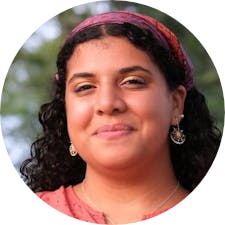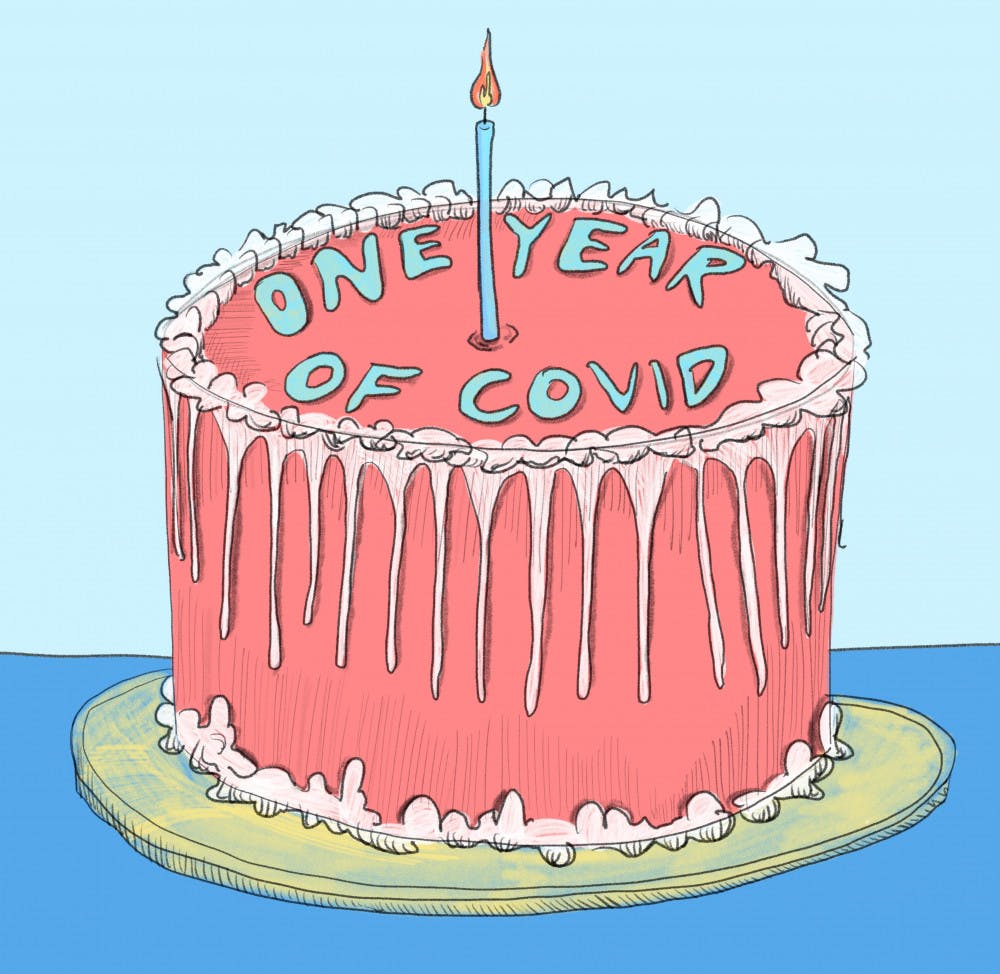For the past few days, Snapchat has been highlighting moments from this time last year, and while memories are usually bittersweet, these are tinged with a special brand of nostalgia. I feel like an audience member that knows something the main character doesn’t, leaving me no choice but to sit and watch as a series of unfortunate events unfold. Every photo and video feels like a memorium: This is your last WOMP show, too many bodies in a too-small space, everyone swaying in sync. This is your last time lingering in the Proc booths, socializing with your computer out just for the pretense. This is your last time sitting in a packed theater, awestruck whispers exchanged with friends sitting centimeters away. This is your last late-night Grille run, mozzarella sticks consumed under fluorescent lights — they taste best at 2 a.m. This is your last academic conference where the only technical issue is that there aren’t enough mics. This is your last time sipping a Starbucks-adjacent latte while poring over your textbook at Wilson Café. This is your last blissfully unaware morning before the world fell apart.
Spoiler alert: the world didn’t end. One year later and everything has turned upside down, but it’s been that way for so long I don’t notice it much anymore. In fact, it feels almost bizarre to see pre-Covid photos or people on television not wearing masks. That’s the new “abnormal,” or it would be, except that “normal” ceased to hold any real meaning the day we learned we were being sent home indefinitely.
March 10, 2020 demarcates a very clear “before” and “after” in my life, and everything in the “after” has been a case study in extremes. Following my departure from campus, I spent six months at home in Astoria, New York with my mom and brother. It felt like a regression. Just as I was starting to thrive at Midd — I had favorite spaces to hang out in, classes and extracurriculars I loved, multiple friend groups — I found myself back in my childhood bedroom, everything the same except for me. Polaroids from high school lined my walls, my graduation cap hung above my desk. I had to readjust all over again, but I took comfort in knowing that everyone else did too. As death tolls rose and states were put under lockdown, we were all in mourning — not just for lives lost but for life as we knew it.
Eventually the curve flattened and restrictions lifted, but because my mom and brother are immunocompromised, we engaged in very few activities. I haven’t ridden the subway since last February, and I can count on one hand the number of times I saw friends while in New York. My high school self would be shocked to discover that she had more freedom of movement — and a much more robust social life — than I did both times I was home. That’s not how it’s supposed to work, she would protest. I had envisioned carefree nights in the city, exploring museums and picnicking in Central Park — getting lost but not caring because that’s what adolescence is for. Instead, I lived different variations of the same day for six months, then again for another three, like a bad “Groundhog Day” remake.
If I wasn’t already bitter enough about this loss, the hours I spent scrolling through Instagram served as a reminder that even as my life was on pause, it had resumed for many others. Over the summer, interspersed with anti-racism infographics were lighthouses and lake houses, foreign locations serving as selfie backdrops. With “white privilege” on the tip of everyone’s tongues, it was hard not to notice the irony. My friends and I were stuck in small apartments, and access to the outdoors, which was already rooted in affluence, was further restricted for us. Meanwhile, people who have always gotten to enjoy the wilderness continued to do so.
My saving grace was that I had a backyard and was able to go on walks around my neighborhood. But even that respite disappeared when I returned home for winter and temperatures dropped. I went days without leaving my house or seeing the sun. Throughout J-Term, I sat on Zoom for hours, lamenting the loss of “J-Term, play term.” Meanwhile, the phrase took on a whole new meaning for other Midd kids; I watched as they skied, hiked and lived in houses together. It’s not that I didn’t want other people to have those experiences, but they brought already-existing socioeconomic divisions into sharp relief. They reminded me that the consequences of this pandemic bear themselves very differently across class lines, significantly altering the losses faced and sacrifices made.
Despite this bitterness, I’ve felt immensely aware of my own privilege in this unprecedented — as everyone likes to remind us — time. I reflect on it daily, listing at least three things I’m grateful for. I’m grateful that both of my parents can work safely from home and that no one I love has lost their life to Covid. I’m grateful that I have access to food, water, electricity, Wi-Fi and somewhere warm to sleep. I’m grateful for my health and safety. These are things that I can no longer take for granted.
When we returned to school in the fall, I avoided catching up with people. I dreaded being asked how my quarantine/summer was because I had nothing to say, few fun experiences to speak of. It was one of the hardest time periods of my life. I was, and still am, reeling from the trauma and didn’t have the emotional energy to pretend otherwise. Once the semester started, however, socializing was easier. I had talking points to cling to — the difficulty of the transition, how many in-person classes I was taking, how different campus felt with all the Covid restrictions — ways to talk to someone without actually talking to them.
And like clockwork, I’ve found myself in the same position as we transition from J-Term into spring semester. For the first few days, I worried that I had developed social anxiety. I feared running into people and having to make small talk. I felt like I had to remember how to be a person again, how to communicate outside the confines of a Zoom box. This was especially difficult given that I had avoided catching up with anyone over break — texting people that I missed them and wanted to FaceTime soon but never actually following through. It wasn’t for a lack of loneliness. FaceTiming people was gratifying, but also draining: while it was nice to interact with friends for a bit, seeing them on a screen served as a reminder of their physical absence, the actual distance between us. I felt guilty for not reaching out more, but checking in is a two-way street, and the mere thought of being asked “how are you” was enough to fill me with anxiety. So I went three months without talking to most of my friends, and now that I’m back, catching up feels even more daunting. However, like last semester, as classes started and dining halls reopened, I scheduled meals and study times with friends, making myself socialize until it felt comfortable again.
But just as I fell into a rhythm, Snapchat memories started to appear, reminding me of how drastically different my life was a year ago. I find myself slipping back into the five stages of grief. But then I refocus on gratitude. I’m grateful that I’m back on campus and that all my classes are in person, since so many of my friends have no choice but to do remote semesters. I’m grateful for the time I spent with my family; our nightly routine of bonding over Netflix shows, and that I was home for Ramadan and my brother’s college acceptance — celebrations I would’ve otherwise missed. [pullquote speaker="" photo="" align="center" background="on" border="all" shadow="on"]I’m grateful that this year has forced us to take a step back and reconsider our priorities, extending compassion and empathy when we might not have before. I’m grateful for growth and healing. I’m grateful that I’m alive. I’m grateful that I’m alive. I’m grateful that I’m alive. [/pullquote]
Editor’s Note: Daleelah Saleh ’23 is an Opinion Editor for The Campus.

Daleelah Saleh ’23 is an Opinions Editor.
She intends to pursue an International Global Studies major with a Global Gender Studies track.
Her coverage at The Campus has included contributions to arts and opinion. In addition to working at The Campus, she is a peer writing tutor at the CTLR and has been involved with WRMC, Verbal Onslaught, and Oratory Now.



